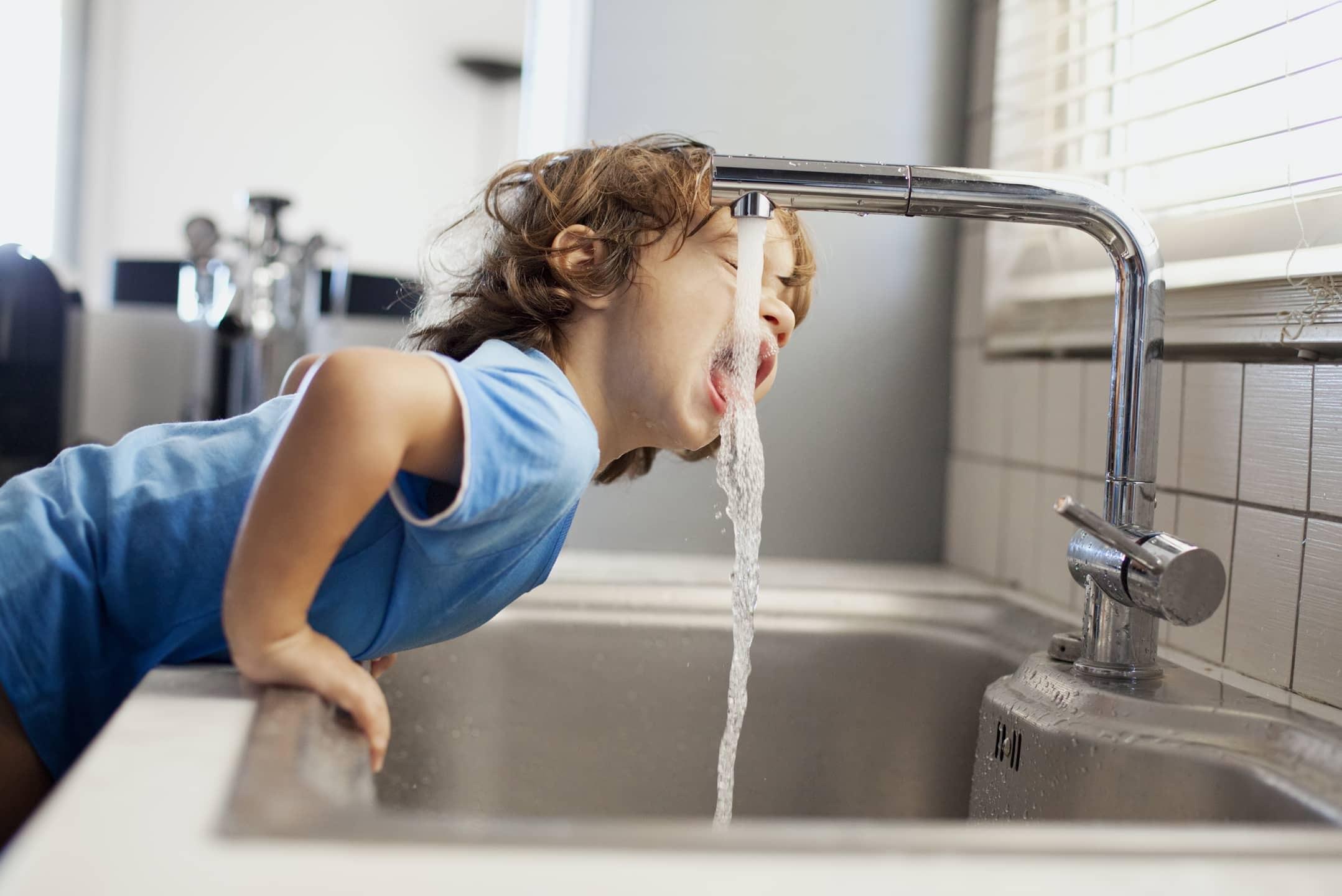VA Loan Water Test Requirements

Whether this is your first VA loan or not, you probably already know to expect some particular VA loan inspection requirements. The requirements for VA mortgages are generally set along the same lines as conventional home loans, but some circumstances might call for additional stipulations.
In addition to functioning electrical and plumbing systems, your target property needs to meet VA loan water test requirements. This is to ensure that the home has a safe source of water.
VA Loan Water Test Inspection Requirements
Since the federal government doesn’t regulate private water sources, the Department of Veterans Affairs has established water testing standards that must be met for a VA mortgage to go through.*
Depending on the location of your target property, a connection to a community water system might already be required by the local government. Be sure to check with your seller and local authorities to confirm all water systems are up to code before going through with an application. If your new home is on a central water system, and you can verify the city water connection, you won’t be required to conduct an additional test.
In areas without access to a city water supply, typically rural neighborhoods, VA loan inspection requirements include ensuring the property has a safe and usable water source. When a test is required, either the local health authority or a licensed third-party professional will check whether your new property conforms to the city’s regulations. In cases where local authorities haven’t set these standards, those requirements will defer to the Environmental Protection Agency, or EPA.
While the VA hasn’t established a list of harmful and restricted chemicals, the required tests will generally look for nitrates, lead and other contaminants that could potentially harm someone who takes a drink.
Do home inspections cover water tests?
Before closing on your new home, you might be required to schedule a home inspection of the property. Appraisals determine the overall value of the home to gauge an appropriate loan amount, but a home inspection is much more thorough.
When you schedule a licensed home inspector, they’ll evaluate the overall condition of the home, its structure, electrical systems, appliances and plumbing. If the home has any pertinent issues uncovered during this process, they’ll have to be addressed before you move in.
A structural problem, for example, would need to be fixed before the VA set the approval wheels in motion. Depending on the extent of the issue, your seller might agree to a reduced sales price or to pay for repairs you make after moving in. If the problem is serious enough and you can’t agree on a solution, you’ll still be able to walk away from the sale.
While home inspections are a detailed and comprehensive analysis of the property, they do not include a test of the water source. The water test requirement will have to be fulfilled by local health authorities or a licensed commercial testing lab.
Since the water test isn’t a required step in the mortgage process, or a part of the home inspection, you’ll have to ensure a separate test is conducted yourself.

Types of Water Sources
Most homes will come with community water connections that won’t require an additional inspection. For those that don’t, however, you’ll need to prove to the VA that the water is safe for consumption. Here’s a look at some of the most common water sources that require tests for VA mortgage approval.
- Private well testing
- Shared wells & cisterns requirements
VA Loan Inspection Requirements for Private Well Testing
While most homes come with a built-in public water connection, plenty of properties do not. Without a public connection, it’s likely the home utilizes either a public or private well.
Private wells, usually found in rural home settings, commonly require a few additional steps in order to pass inspection. In addition to the VA, your lender will also likely need you to demonstrate the water is safe for drinking.
In most cases, the water test will be conducted in the home itself. If the test is taken from the well, your lender will want to confirm the water source passes inspection and that it actually provides adequate water pressure and is safe, clean and d. At minimum, well water should be tested for lead, E. coli, nitrate, bacteria and arsenic.
In the event that local authorities aren’t able to conduct the test themselves, a third-party company should be brought in to fulfill the requirement.
Shared Well and Cistern VA Loan Inspection Requirements
Certain types of community water sources, such as shared wells and cisterns, also need to pass the VA’s water inspection guidelines.
A private well might be shared by multiple homeowners, but the VA will need to check up on its safety before approving a loan. These water sources need to be capable of providing drinkable water to each property it services at the same time. In addition, the VA will require a permanent easement be placed on the well, allowing for access and repairs as needed. Each property owner that uses the well must also reach a formal agreement on how the well is to be properly utilized.
It’s possible that your target home may use a cistern as a water source. Much like a well, cisterns collect and store water to be used over time. While more uncommon than shared wells, cisterns providing water to multiple properties usually carry the same requirements.
When Water Doesn't Pass Inspection
Lenders won’t issue a VA mortgage for a home when the water system falls short of health and safety standards, so a failed test will mean some additional steps should be taken. There may be other locally mandated regulations that specify how your water connection should be set up, so you’ll need to meet those before you can close. Wells and other private water sources can be treated, upgraded or rebuilt and tested again.
Additional steps like these add time and expenses to an already complicated process. It’s always best practice to ensure your water source is up to standard prior to applying for a loan.
In conclusion
As an often overlooked step in the VA mortgage process, water system tests can wind up costing you a bundle if not approached with diligence. In order for your lender to issue the financing, you’ll need an in-depth understanding of local and federal water regulations, and which ones apply to your target property.
If you’ve done the prep research on your new home’s water system and are ready to apply, you get started on your VA mortgage application today.
*Rate has no affiliation with the US Department of Veterans Affairs.




